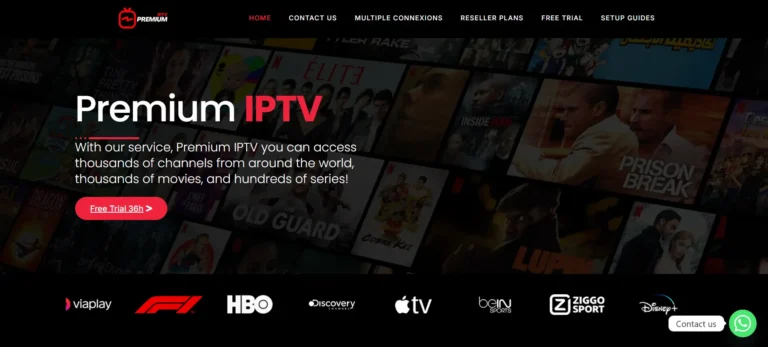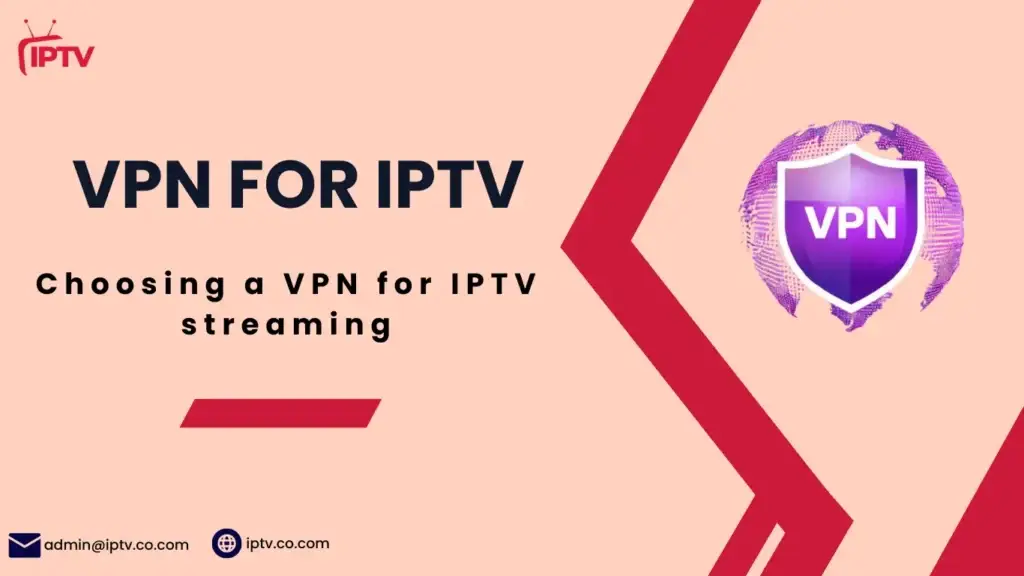IPTV IP Address: What It Is and How to Find It
In the fast-changing world of digital entertainment, many IPTV users wonder: “What is an IPTV IP address, and why is it so important?” This key information unlocks the best of your IPTV streaming. Let’s explore IPTV IP addresses and how to find them easily.
Table of Contents
Understanding IPTV Fundamentals
IPTV, or Internet Protocol Television, changes how we watch TV. It uses the internet to send TV shows and movies. This gives us a more personal and interactive way to watch TV.
What Makes IPTV Different from Traditional TV
IPTV and traditional TV differ in how they deliver content. IPTV sends content just to you, based on your device and what you like. Traditional TV sends the same show to many people at once.
Core Components of IPTV Systems
- Managed or dedicated IP networks for content delivery
- Set-top boxes or IP-enabled devices at the viewer’s end
- Servers and infrastructure for encoding, encrypting, and distributing IPTV content
The Role of IP Protocol in Television Delivery
IPTV uses the TCP/IP protocol to send video and audio over the internet. This lets us watch what we want, when we want. It also lets us get TV, phone, and internet together.
The IP protocol also brings cool features like recording and rewinding live TV. And it gives us TV shows and movies based on what we like.
“IPTV is revolutionizing the way we experience television, providing greater flexibility, interactivity, and personalization than ever before.”
Best IPTV Providers
The Technical Foundation of IPTV Services
IPTV, or Internet Protocol Television, uses managed networks for better quality of service and reliability. A stable broadband internet connection is key for smooth IPTV experiences. Set-top boxes or devices receive and decode IPTV signals from the provider’s server, sending them to the viewer’s display.
This setup allows for better IPTV traffic management and bandwidth use. IPTV uses MPEG compression to reduce file sizes and bandwidth needs. This makes content delivery efficient. IPTV offers various services like Video on Demand, TV on Demand, Near Video on Demand, and Live Broadcast to meet different viewer needs.
IPTV services have different business models, including subscription-based, pay-per-view, and ad-supported. These models help platform owners earn money. Servers are vital for storing and delivering video content. Streaming protocols like HTTP Live Streaming and Dynamic Adaptive Streaming over HTTP ensure smooth streaming.
For IPTV security, encryption techniques like HTTPS and AES are used. A successful IPTV business needs high-performance servers, scalable infrastructure, and strong security to protect data.
IPTV Delivery Methods: Multicast and Unicast
IPTV services can use multicast or unicast streaming. Multicast is good for low computing power and low bandwidth. Unicast supports Adaptive Bit Rate (ABR) and catch-up TV features.
The choice between multicast and unicast depends on the provider’s infrastructure and goals. It’s important to weigh the pros and cons of each method for the best IPTV delivery.
Integrating IPTV with IMS
Integrating IPTV with IMS is a growing trend. IMS and IPTV share functions like user management and authentication. Providers need to consider the pros and cons of integration for their business goals.
IMS and IPTV integration offers benefits like standardized interfaces and fast access to user data. However, there’s no yet ratified standard for this integration. Providers must navigate this evolving landscape carefully.
IPTV IP Address: Essential Components and Functions
The IPTV IP address is key for streaming content smoothly. It helps servers and devices talk to each other. This is how audio and video get to your screen without a hitch.
How IP Addresses Enable IPTV Streaming
IPTV uses IP address functions to stream content. Each device gets a unique IP address. This lets the server-client communication happen, so you can watch your favorite shows.
Types of IP Addresses Used in IPTV
- Public IP Addresses: These are unique worldwide. They let devices talk directly to the internet.
- Private IP Addresses: These are for local use, like at home. They use NAT to talk to the internet.
Server-Client Communication Process
The server-client communication process starts when you ask for a channel. The server picks the right IPTV protocols to send the stream. This makes sure you get your content without any problems.
“The IPTV IP address is the foundation that connects viewers to the vast library of content available through their IPTV service.”
Network Infrastructure Requirements for IPTV
For a smooth IPTV experience, a strong network is key. It must handle the high bandwidth needed for streaming videos. A stable broadband connection and enough network bandwidth are vital for IPTV success.
Managed networks are important for IPTV. They help ensure IPTV traffic gets priority and quality stays high. The network must support streaming high-quality video and audio over IP networks. This allows for features like video-on-demand and interactive TV.
| IPTV Service Requirement | Bandwidth Consumption |
|---|---|
| Standard Definition (SD) TV Channels | 2-5 Mbit/s per channel |
| High Definition (HD) TV Channels | 4-10 Mbit/s per channel |
| 10 x SD Channels for 100 Users (Unicast) | 500 Mbit/s |
| 10 x SD Channels for 100 Users (Multicast) | 50 Mbit/s |
Using multicast streaming can greatly reduce network bandwidth needs. This makes the network more efficient and saves costs. Good network management and optimization are crucial for a top-notch IPTV experience.
“By 2010, 94% of Internet traffic will come from video-related services.”
As video service demand grows, IPTV providers must update their networks. They need to ensure their infrastructure can handle more bandwidth. This is to keep the viewing experience consistent and high-quality for their customers.
IPTV Server Configurations and Setup
Setting up IPTV servers is key to a great streaming experience. Where the server is located matters a lot. Servers near viewers mean less delay and better connection, making IPTV smoother.
Server Location Impact on Streaming Quality
The place of IPTV servers affects how well they work. Servers in the right spots cut down on data travel time. This makes the streaming quality better and the service more reliable.
Bandwidth and Connection Requirements
Good bandwidth allocation and stable connections are crucial for top-notch IPTV. Servers need to handle lots of connections well. Without enough bandwidth or stable connections, you might see buffering and poor video quality.
| Server Configuration Factors | Impact on IPTV Streaming |
|---|---|
| Server Location | Affects network latency and overall performance |
| Bandwidth Allocation | Ensures smooth and uninterrupted content delivery |
| Connection Stability | Maintains consistent and reliable streaming quality |
By optimizing IPTV server setup, providers can offer a top-notch viewing experience. This includes focusing on streaming quality, bandwidth allocation, and connection stability.
Methods for Finding Your IPTV Provider’s IP Address
Finding your IPTV provider’s IP address is key to better streaming and fixing connection problems. There are several ways to get this important info.
One way is to reach out to your IPTV provider’s customer support. They can give you the IP address of their server. This helps check if the info they provide is correct and if the server is close to you.
- Many IPTV providers have tools or online resources to find their IP address.
- Tools like whatismyipaddress.com can also help find your IPTV provider’s server IP address.
- By changing the URL of your IPTV service’s M3U playlist or Xtreme Code, you can find the server IP address.
Knowing your IPTV provider’s IP address helps with network diagnostics. It also improves your streaming by finding the best server location. This info is great for fixing connection issues or checking if the provider’s details are right.
| Device | Method to Find IP Address |
|---|---|
| Fire TV | Go to Settings > Network > View Network Details |
| Android Devices | Go to Settings > Network & Internet > Wi-Fi > Select Active Network > IP Address |
| iPhone/iPad | Go to Settings > Wi-Fi > Tap on Connected Network > IP Address |
| Chromecast | Use the Google Home app and select the Chromecast device > Device details > IP address |
| LG TV | Go to Settings > Network > Network Status |
| Vizion | Go to Settings > Network > IP Address |
| Samsung TV | Go to Settings > Network > Network Status |
| PlayStation 4 (PS4) | Go to Settings > Network > Connection Status |
| PlayStation 5 (PS5) | Go to Settings > Network > Connection Status |
| Xbox | Go to Settings > Network > Advanced Settings > IP Settings |
| Chromebook | Go to Settings > Network > View Network Details |
By using these methods, you can find your IPTV provider’s IP address. This will make your streaming better.
Common IPTV Connection Protocols
IPTV uses different protocols to send content over IP networks. UDP (User Datagram Protocol) and RTP (Real-time Transport Protocol) are two main ones.
UDP vs. RTP Protocols
UDP is fast and doesn’t check for errors. It’s great for streaming because it sends data quickly. RTP is made for real-time media, ensuring smooth playback with features like time-stamping.
Multicast vs. Unicast Streaming
IPTV can stream content in two ways. Multicast sends many programs at once, saving network resources. Unicast sends one program to each viewer, offering personalization but using more bandwidth.
Choosing between multicast and unicast depends on the network, viewer needs, and content type. Knowing the strengths and weaknesses of each helps IPTV providers improve the viewing experience.
“The various video transmission protocols used in IPTV networks, such as Real-Time Streaming Protocol (RTSP), Hypertext Transfer Protocol (HTTP), Real-Time Transport Protocol (RTP), User Datagram Protocol (UDP), and Internet Group Management Protocol (IGMP) cater to different needs and functionalities of content delivery.”
Troubleshooting IPTV Connection Issues
Having trouble with your IPTV service can be really frustrating. But, there are steps you can take to fix it. Understanding network diagnostics and what affects streaming quality is key.
First, check the IP address of your IPTV provider’s server. Having the right IP address and making sure it’s accessible on your network can help a lot. Also, knowing the bandwidth and network needs for your IPTV service can help find any network issues that might be affecting your streaming.
If you’re still having trouble, here are some steps to try:
- Check your internet connection speed and make sure it meets your IPTV service’s needs.
- Restart your router and modem to fix any temporary network problems.
- Make sure your IPTV device is plugged directly into the router with an Ethernet cable. Wi-Fi can sometimes cause connection issues.
- Clear the cache and app data for your IPTV app. This can help solve any software problems.
- Check if your IPTV provider’s servers are working and if there are any outages or maintenance.
If these steps don’t work, it’s time to contact your IPTV service provider for help. They can give you more detailed advice and help find any specific problems with your account or network setup.
| Troubleshooting Tip | Potential Impact |
|---|---|
| Check internet connection speed | Ensures your internet plan meets IPTV requirements |
| Restart router and modem | Clears temporary network issues |
| Use Ethernet connection | Provides more stable and reliable connection than Wi-Fi |
| Clear IPTV app cache | Resolves software-related issues |
| Verify server status | Identifies any provider-side outages or maintenance |
By following these IPTV troubleshooting steps, you’ll be well on your way to fixing any connection problems and enjoying great streaming quality with your IPTV service.
Security Considerations for IPTV IP Addresses
IPTV is getting more popular, and keeping IPTV IP addresses safe is key. We need to focus on IPTV security to stop unauthorized access prevention. This helps in making secure streaming and protecting IP address protection.
Protection Against Unauthorized Access
Research shows 72% of IPTV data breaches come from weak passwords and poor security. To fight this, IPTV services and users must use strong login methods. This includes multi-factor authentication to block unauthorized access to IPTV services and IP addresses.
Best Practices for Secure Streaming
Secure streaming also needs other important steps. These include:
- Encrypting data to keep sensitive info safe
- Keeping security updates current to fight new threats
- Telling users to use unique, strong passwords and not reuse them
- Using a trusted VPN to hide IP addresses and boost security
By following these steps, IPTV providers and users can protect IPTV IP addresses. This keeps IPTV services safe and secure, giving everyone a great streaming experience.
“Protecting IPTV IP addresses is essential to prevent unauthorized access and ensure the privacy and security of IPTV users.”
IPTV Service Provider Server Locations
The location of IPTV servers is key for streaming quality and content access. Knowing where servers are can help users spot latency and content limits.
IPTV providers spread their servers across the globe. This setup aims to cut down on streaming delays. It makes sure users get a smooth viewing experience, no matter where they are.
It’s smart for users to ask about server locations. This helps understand the service’s setup and how it might perform. It’s also good for spotting any content limits or possible delays due to server distance.
| IPTV Service Provider | Server Locations | Average Streaming Latency | Regional Content Restrictions |
|---|---|---|---|
| Provider A | United States, Canada, United Kingdom | 2-3 seconds | Some international channels may be restricted in certain regions |
| Provider B | United States, Europe, Asia | 1-2 seconds | No significant regional restrictions |
| Provider C | United States, Mexico, Brazil | 3-4 seconds | Certain Latin American channels may be restricted outside of the region |
Looking into server locations helps users choose the right IPTV service. It ensures they get the streaming quality and content they want.
“Understanding the server geography of your IPTV service provider is crucial for ensuring a seamless streaming experience and accessing the content you desire.”
Managing Multiple IPTV Connections
IPTV services are becoming more popular. Many users now manage multiple IPTV connections. They deal with single versus multiple IP address subscriptions and load balancing.
Single vs. Multiple IP Address Subscriptions
Some IPTV providers offer multiple connections under one IP address. This makes setup and management easier for users with many devices. But, other providers need separate IP addresses for each connection, making things more complex.
Load Balancing Considerations
Managing multiple IPTV connections means load balancing is key. Users need to think about their IPTV’s bandwidth needs. They must make sure their network can handle the load well.
Understanding your IPTV service is crucial for good management. Knowing the options for IP address subscriptions and load balancing helps. This way, users can get the best out of their IPTV streaming.
“Proper management of multiple IPTV connections is essential for delivering a seamless and uninterrupted streaming experience.”
Optimizing Your IPTV Streaming Experience
Getting the best out of IPTV streaming is more than just the right IP address. You need to tweak your network settings and understand Quality of Service (QoS) settings. Also, keeping an eye on your internet speed is key for better streaming.
For top-notch IPTV, knowing your internet speed is crucial. SD streaming needs at least 3 Mbps, HD requires 5-10 Mbps. For 4K, you’ll need 25 Mbps. This knowledge helps you match your internet to your streaming needs.
Using the latest network tech, like dual-band Wi-Fi and Wi-Fi 6 routers, boosts IPTV performance. Setting up QoS on your router to favor IPTV can cut down on buffering. Also, checking your internet speed and fixing any issues helps a lot.
FAQ
What is IPTV and how does it work?
IPTV stands for Internet Protocol television. It sends TV shows over the internet using TCP/IP. It also offers features like watching shows on demand and interactive TV.
What are IPTV IP addresses and why are they important?
IPTV IP addresses are key for better streaming and fixing connection problems. Users can find their IPTV provider’s IP address. This helps solve connection issues and ensures good service.
How does IPTV differ from traditional TV?
IPTV uses the internet to send TV shows in a special format. It uses TCP/IP for sending content. This allows for features like watching shows on demand and interactive TV.
What are the core components of an IPTV system?
An IPTV system has set-top boxes, managed networks, and IP-based delivery. This setup helps manage IPTV traffic and bandwidth.
How do IP addresses enable IPTV streaming?
IP addresses help send programs from provider servers to viewers’ devices. IPTV uses different types of IP addresses for communication and content delivery.
What are the network infrastructure requirements for IPTV?
IPTV needs a strong network, including stable internet and enough bandwidth. Managed networks are key for good IPTV service.
How do IPTV server configurations impact streaming quality?
Server locations affect how well IPTV streams. Good bandwidth and stable connections are needed for quality service. Servers must handle many connections and send content well.
How can users find their IPTV provider’s IP address?
Users can ask the IPTV provider or use online tools to find the IP address. Knowing the IP address helps fix connection problems and improve streaming.
What connection protocols are used in IPTV?
IPTV uses UDP and RTP for efficient content delivery. It can use multicast or unicast streaming for different needs.
How can users troubleshoot IPTV connection issues?
To fix IPTV issues, check server IP addresses, network, and streaming quality. Verify server locations, check bandwidth, and ensure protocol settings are correct.
How can IPTV IP addresses be secured?
Securing IPTV IP addresses is vital to prevent unauthorized access. Use strong authentication, encrypt data, and update security protocols regularly.
How do IPTV service provider server locations impact streaming performance?
Server locations affect IPTV streaming quality and content availability. Knowing server locations helps understand latency and content restrictions.
How can users manage multiple IPTV connections?
Managing multiple IPTV connections involves using single or multiple IP addresses. Consider load balancing for better performance.
How can users optimize their IPTV streaming experience?
To improve IPTV streaming, adjust network settings, ensure enough bandwidth, and choose the right streaming protocols. Understanding server locations and optimizing your network can also help.







